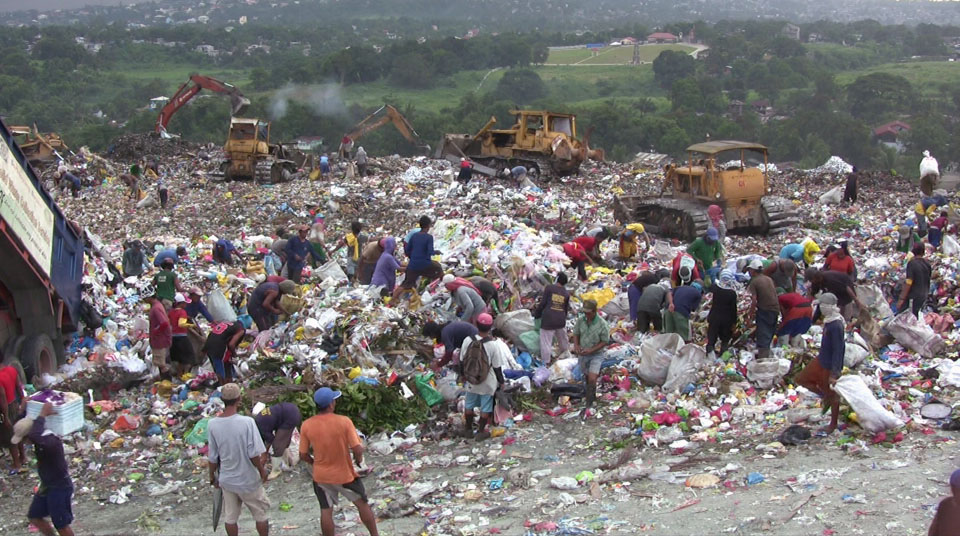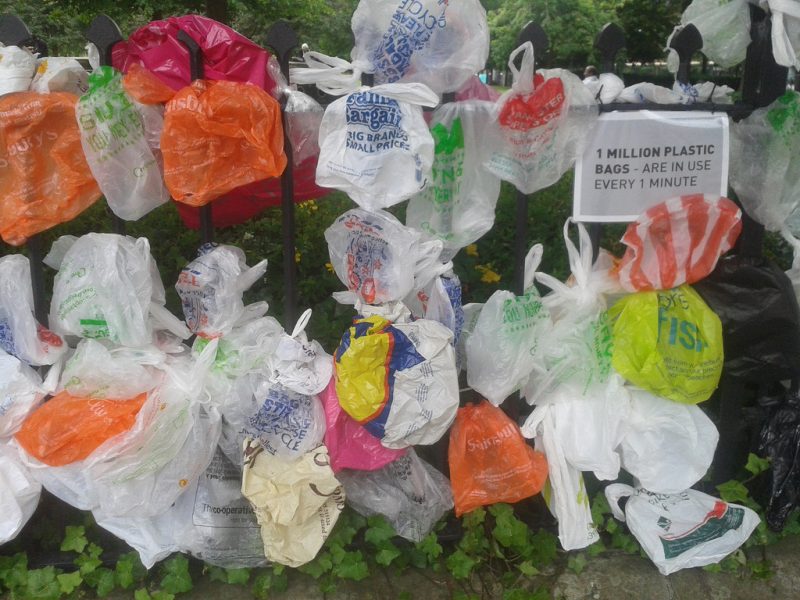Where does the world’s largest archipelago currently stand in the fight to save Earth from turning into a ‘plastic planet’?
Earlier this year, research led by the University of Leicester in the UK revealed that we are on the brink of entering ‘The Age of Plastics’. The report suggests that the world is now so polluted with plastic waste that it might give rise to a new geological epoch called the Anthropocene – where human activities become the dominant influence on climate and the environment.
“We were aware that humans have been making increasing amounts of different kinds of plastic – from Bakelite to polyethylene bags to PVC – over the last 70 years, but we had no idea how far it had travelled round the planet. It turns out not just to have floated across the oceans, but has sunk to the deepest parts of the sea floor. This is not a sign that our planet is in a healthy condition either,” Professor Jan Zalasiewicz told The Guardian.
Scientists, activists and government officials across the globe are now fighting harder to restrict the use of plastic bags, as they are slowly taking over our world. Indonesia is no exception.
Since February, Indonesian shoppers have officially bid farewell to free plastic bags. After putting the new policy into test trials in a number of cities, Indonesia has reportedly seen a decline in plastic bags. A recent study by the Indonesian Consumer Foundation (YLKI) details the nation’s transition in plastic bag usage since the policy took effect:
“One month after the policy’s implementation, the Ministry of Environment and Forestry and my team and I observed that in the 23 cities in which the policy was implemented there was on average a 40 percent reduction in plastic bags,” says the executive coordinator of Gerakan Indonesia Diet Kantong Plastik (GIDKP), an organization which focuses on reducing the use of plastic bags in the archipelago.
But despite the policy’s slight accomplishment in reducing plastic bags, environmental activists think that Indonesia is still far from making a real difference. For one, the government is not doing enough to socialize the message behind its decision to implement the new policy, and locals are finding it hard to adjust to the obligation of buying plastic bags at the checkout counter.
To give an illustration, YLKI’s survey revealed that retailers and sellers are not prepared for the policy change, as they are not provided with any new standard operating procedures for customers’ non-plastic shopping bags.
Local customers, on the other hand, might still be unaware of how plastic bags can bring environmental damage. While there are indeed some who appreciate government’s initiative, others in general still do not fully understand why they must cut down the use of plastic bags.
Responding to the matter, YLKI’s Chairman of the Executive Board Tulus Abadi said that the government must educate locals about the exact kinds of plastic that contain harmful substances. Additionally, it must clearly define which plastics to apply excise tax to if it hopes to discourage customers from buying plastic bags.
“Criteria must be set on what type of plastic should be subjected to levy since an environmentally friendly type of plastic can also be made,” Abadi recently told Tempo.
Another main reason why customers eventually choose to purchase plastic bags is the price. Experts have ultimately called on the government to increase the plastic bag tax, as prices are considered ‘too cheap’ for shoppers. By and large, consumer seem to have no problem paying for them when push comes to shove.
“I strongly believe that the compulsory charges on plastic bags will be effective if imposed at appropriate levels, especially with some explanation to the public. I have not done a precise estimation, but 200 [rupiah] seems too low… roughly 1,000 to 2,000 [rupiah] (US$0.08 – US$0.15) would be better,” says Yew-Kwang Ng, a professor of economics at Singapore’s Nanyang Technological University.
Next year, the government is expected to apply a mandatory version of the plastic bag tax, which will also include paying for plastic packaging. The tax, however, only will only apply to plastic packaging that cannot be recycled like styrofoam, sachets and straws. Those that can be recycled will otherwise be relieved from the tax.
In 2014, the nation announced a preliminary effort to improve waste management with hopes that society would become more familiar with 3R activities (recycle, reduce, reuse). The movement accordingly targeted a 20 percent waste decrease by 2019. It also aimed to lower greenhouse emissions by six percent come 2020. Regardless of its attempts to deter heavy plastic consumption in the country, some still wonder if the government is truly on board to help restore the world’s cleanliness. As the world’s second largest contributor to plastic waste, Indonesia still has a lot to prove.
The archipelago currently produces as many as 260 million tonnes of plastic waste per year. Around 187 million of them are dumped into the nation’s waters. Without serious commitments, there is no way for Indonesia to claim success of its ambitious plans.
“A good road map and clear target is urgently needed. The president has announced that Indonesia should be free of waste by 2020. But without a clear programme and agenda on how to achieve this, I believe this plan will definitely fail,” said Khalisah Khalid, a national executive at environmental advocacy NGO Friends of the Earth Indonesia.
Featured Image via Duncan Hall




